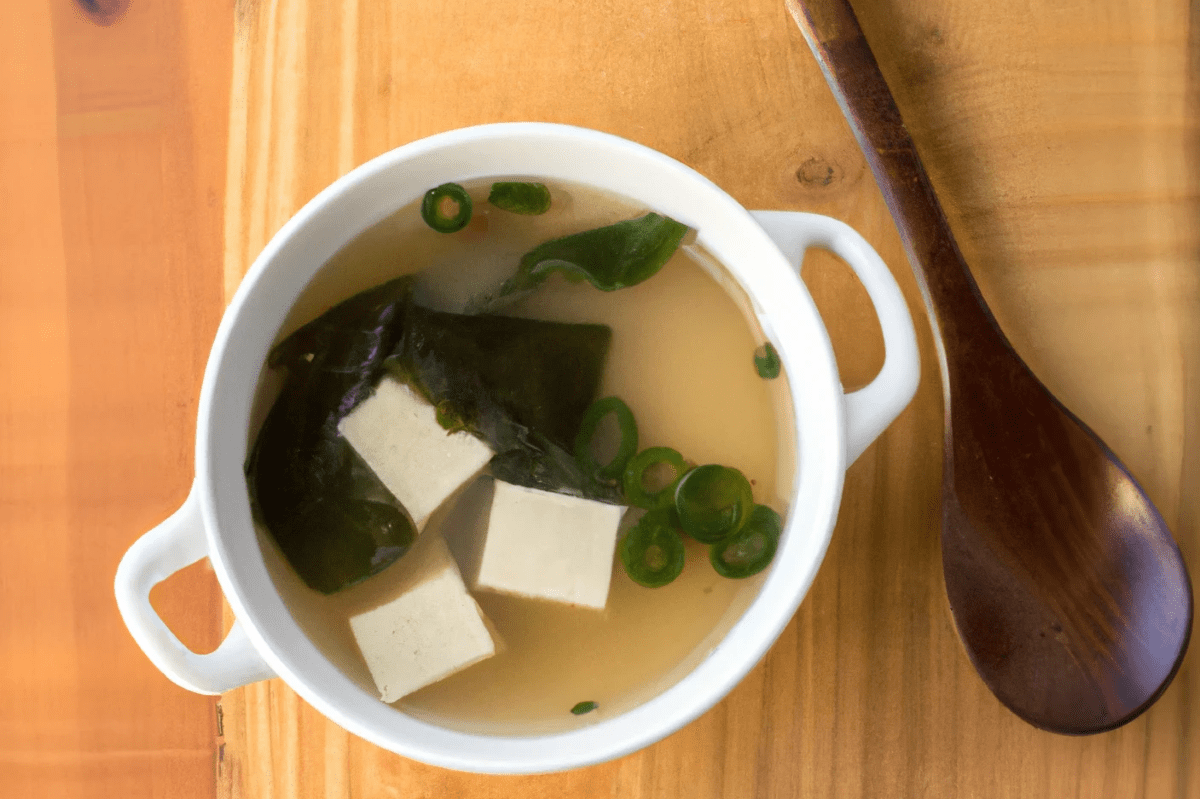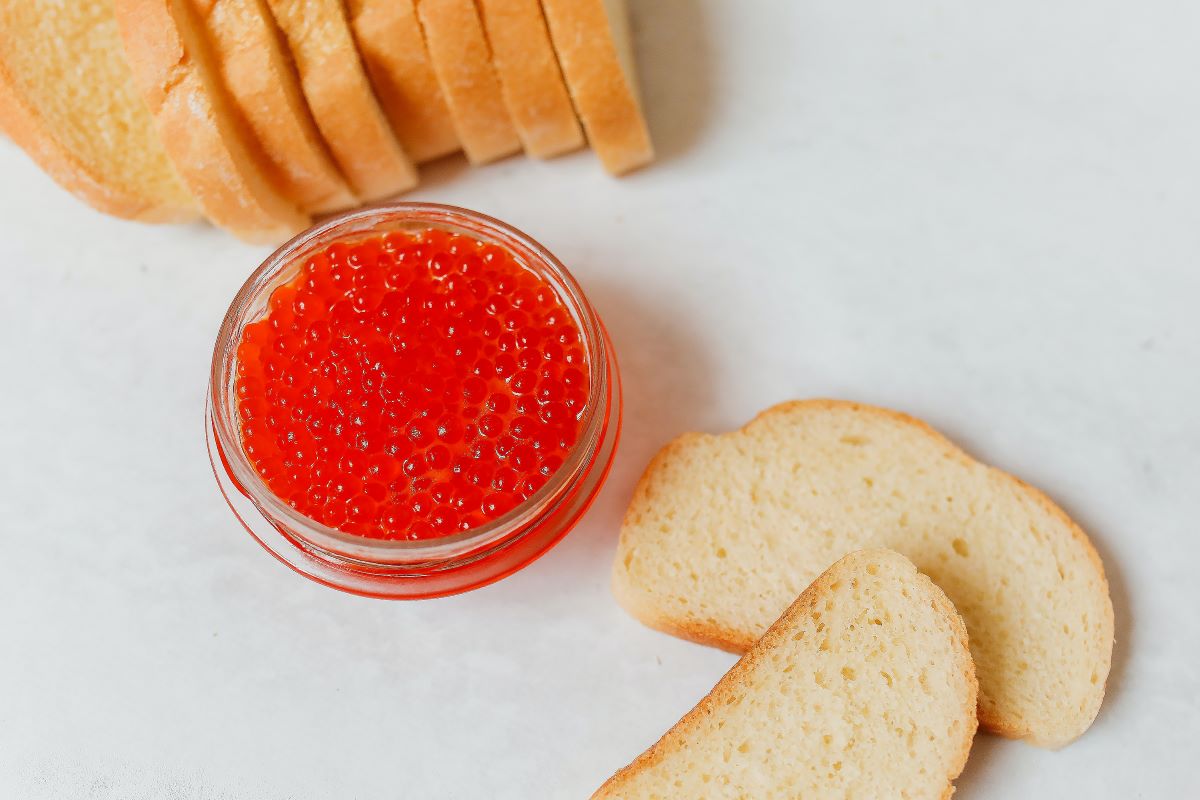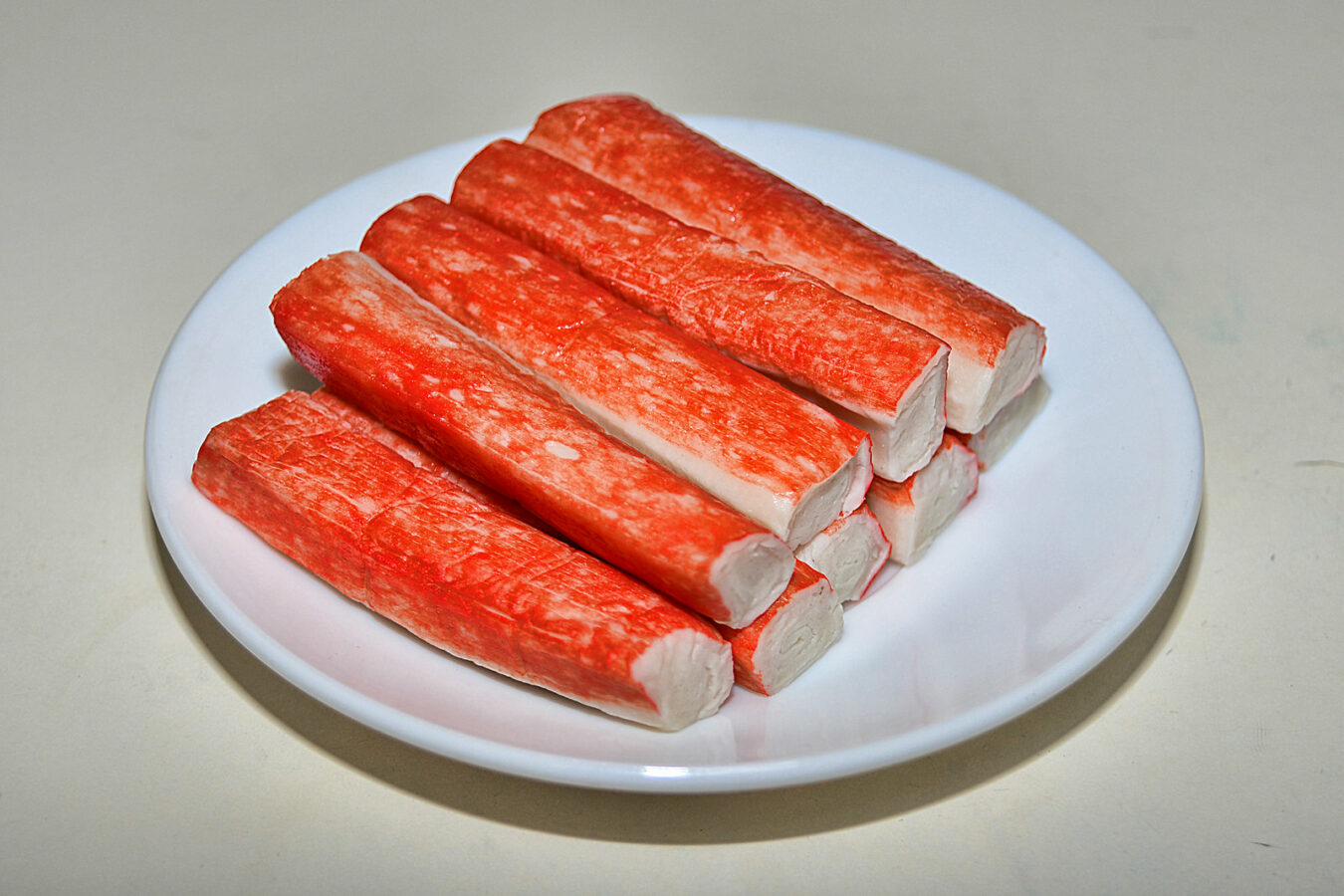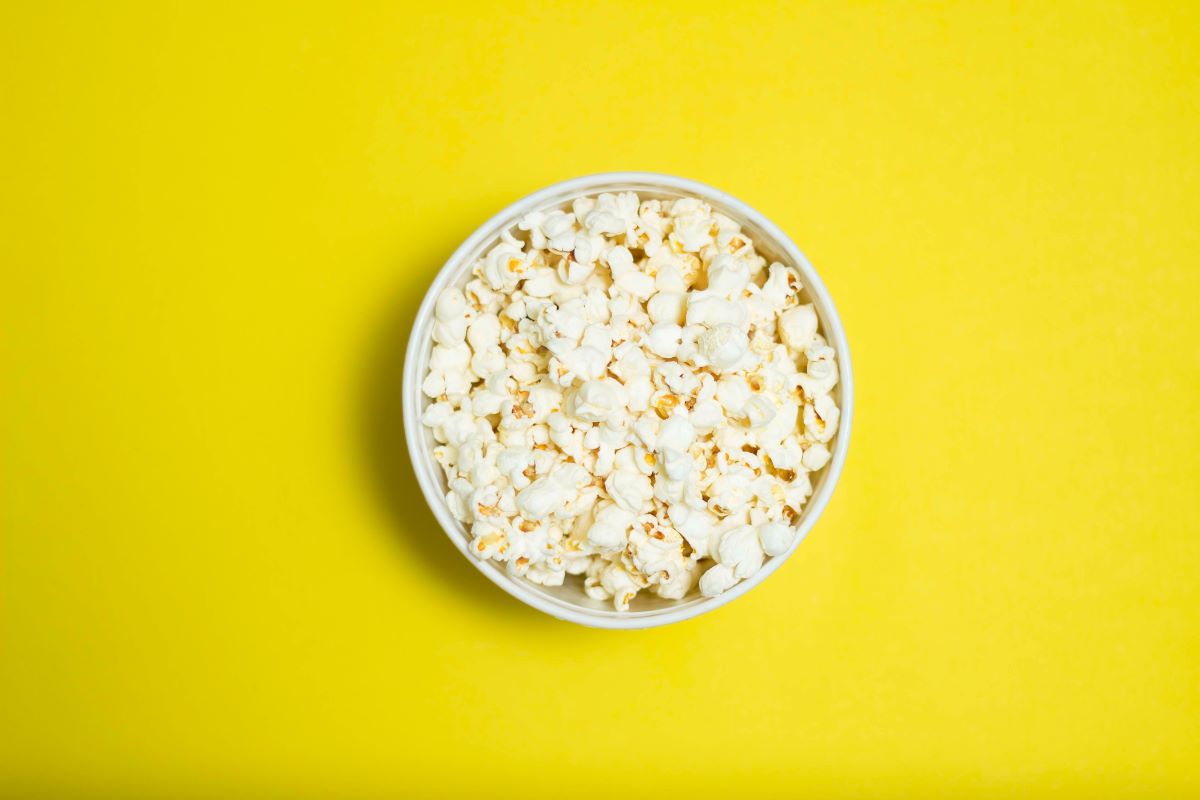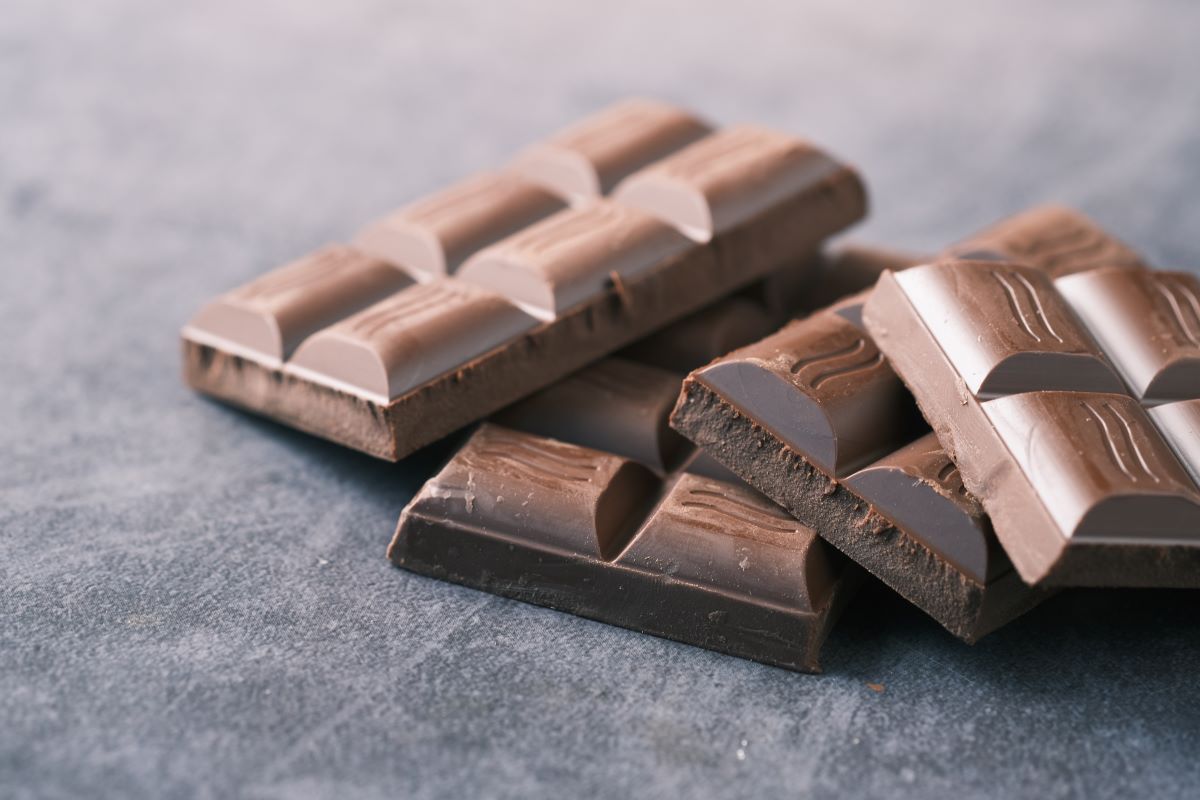Table of Contents
If you’ve ever cozied up with a warm mug of chai, you know the goodness it brings. But if you’re vegan, you might wonder: Is this popular spiced tea also friendly to your dietary preferences? This article aims to answer just that, diving into the types of chai, vegan-friendly recipes, and more.
Is Chai Vegan?
The short answer is sometimes. Traditional masala chai is often brewed with black tea leaves and spices like cardamom, cloves, and cinnamon. It is then blended with milk, which is usually dairy. However, making a vegan chai latte or chai tea is simple and requires swapping animal products like dairy milk for plant-based kinds of milk.
Non-Vegan Ingredients or Processes
The main non-vegan ingredient in many chai products is milk. Dairy products are derived from animals, making them non-compatible with a vegan diet. Some commercial chai teas and chai lattes also include honey as a sweetener, another animal product.
At places like Starbucks, you must be cautious about additives like xanthan gum or natural flavors, which can sometimes be derived from animal products.
Controversies or Gray Areas within the Vegan Community
One area of debate in the vegan community is using spices sourced from countries with questionable labor practices. Since chai’s unique taste comes from a blend of spices, ethical vegans might consider the sourcing of these spices.
Furthermore, while most spices are just dried plants, certain commercial spice blends may contain non-vegan additives or be processed in facilities that also handle animal products.
Types of Chai
There are various types of chai, from the traditional masala chai, which originated in India, to chai lattes commonly found in coffee shops.
The main ingredients—tea and spices—remain constant, but the additives can differ. Masala chai uses black tea leaves and whole spices, whereas chai lattes often have a base of concentrated spiced tea mixed with frothed milk.
Vegan-Friendly Alternatives and Variations
As the demand for vegan products continues to rise, various vegan-friendly chai options have become available. From your local grocery store to specialty online shops, plant-based chais are now more accessible than ever.
Whether you want a convenient chai latte mix or prefer whole spice blends for brewing from scratch, there’s a product that suits your needs and taste buds.
Store-Bought Alternatives
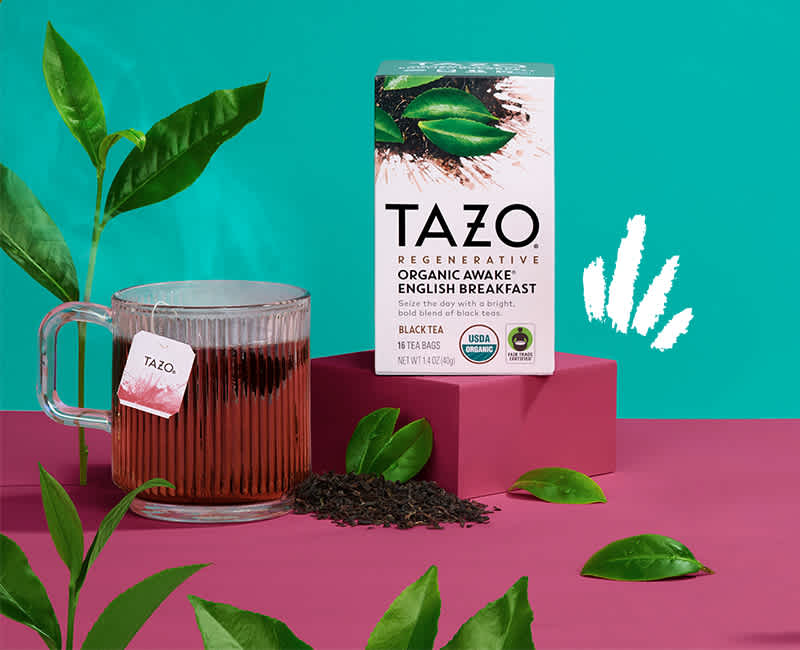
Tazo
Known for their chai teas, Tazo offers plant-based versions made with spices and black tea leaves. Simply steep in hot water and add your favorite plant-based milk.

Oregon Chai
Oregon Chai produces a dairy-free chai concentrate ready for mixing. A blend of spices and black tea makes it easy to whip up a vegan chai latte at home.
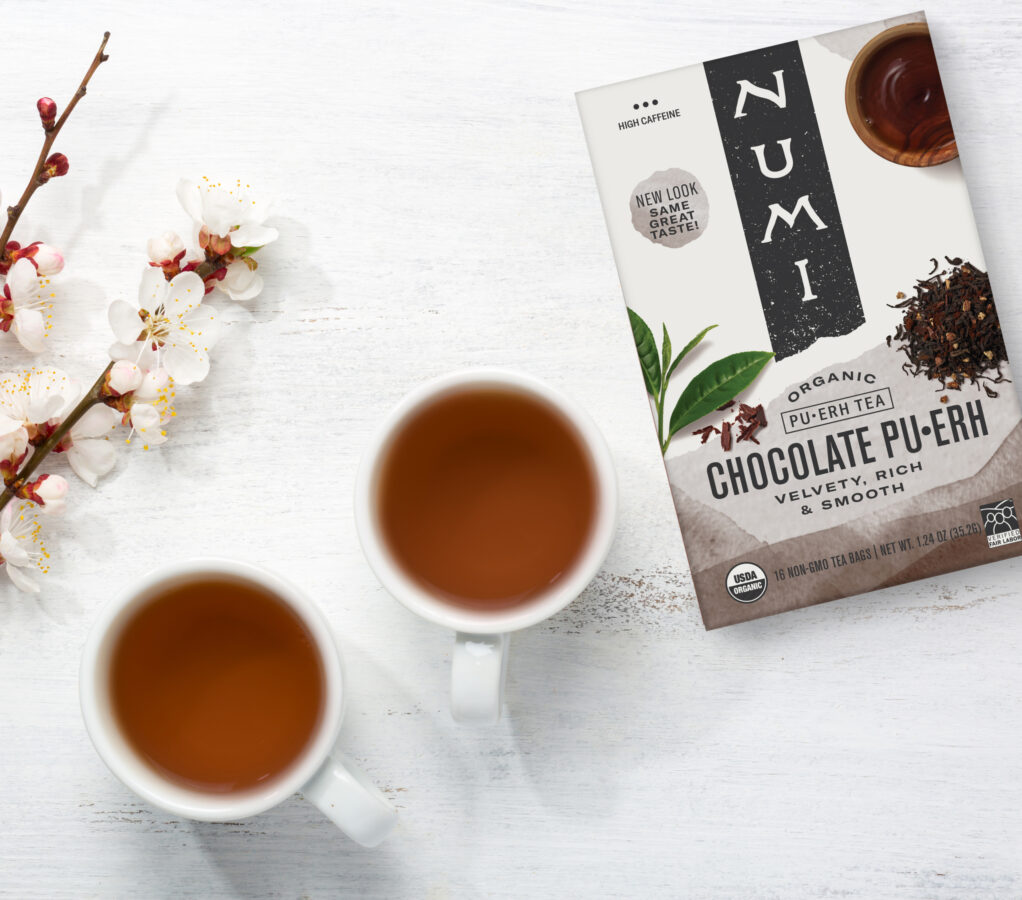
Numi Organic Tea
Numi Organic Tea’s Golden Chai blends Assam black tea and spices like cardamom and cinnamon. Just add your choice of plant-based milk for a vegan version.
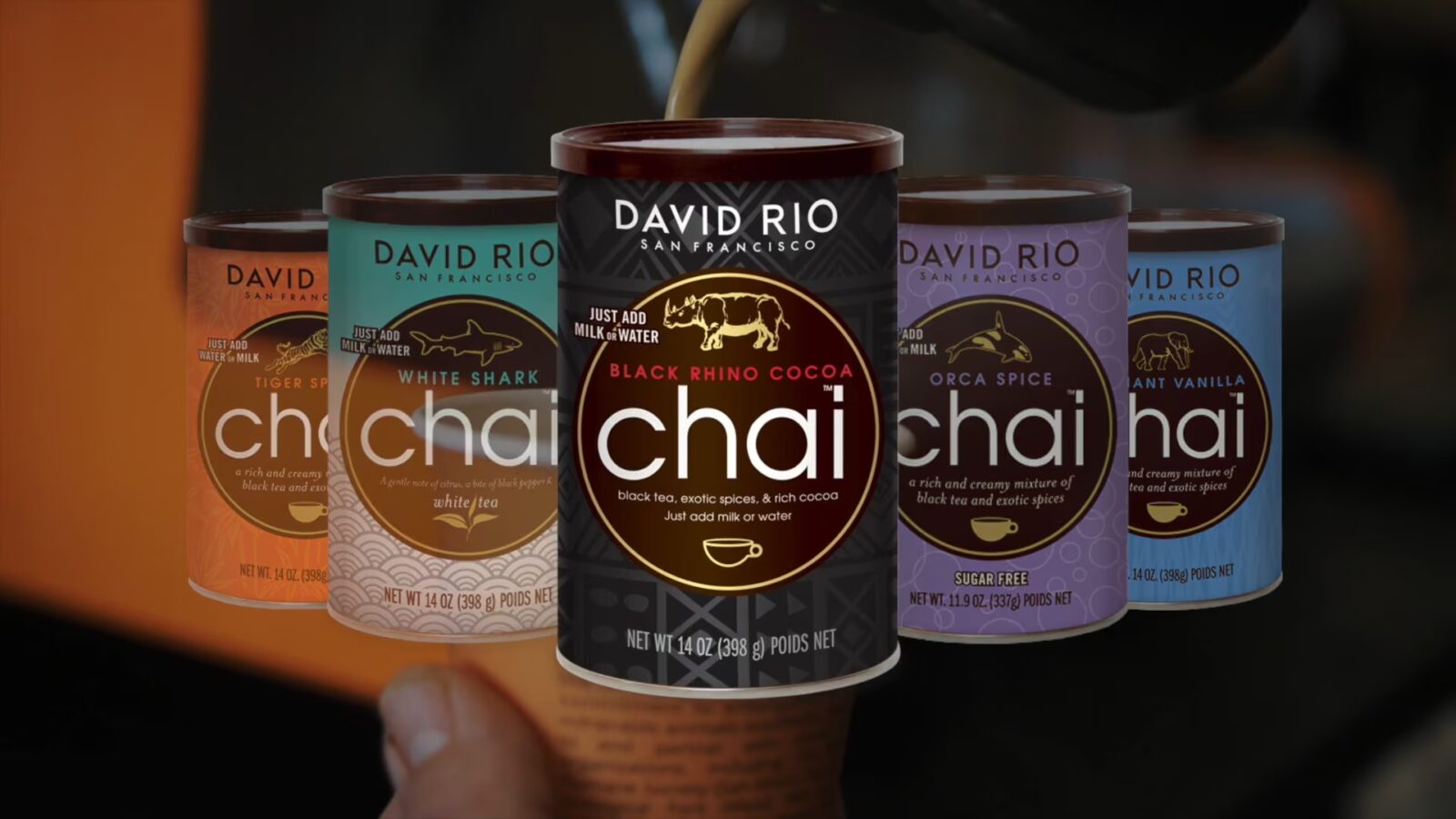
DavidRio
DavidRio’s Tiger Spice Chai is a mix that includes a non-dairy creamer. Just add hot water and enjoy.
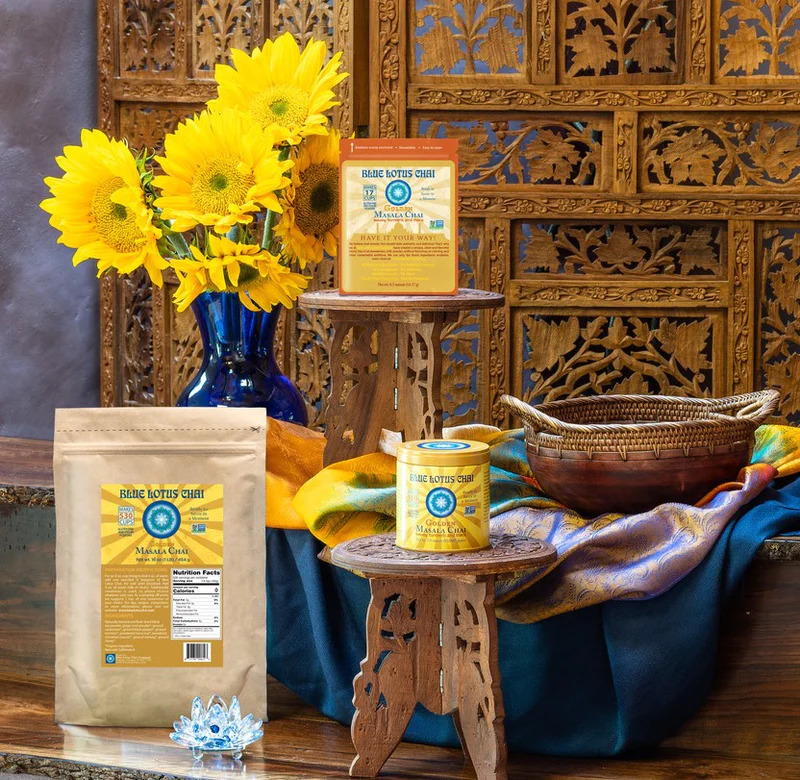
Blue Lotus Chai
Blue Lotus Chai offers a vegan masala chai in a fine powder form. It’s a blend of spices without any additives, suitable for those who like to control the sweetness and milk content.
Tips for Identifying Vegan-Friendly Options
Read the Label: Always scan the ingredients list for animal-derived products like milk powder, honey, or non-specified “natural flavors.”
Look for Certifications: Vegan certifications on the package are a quick way to ensure the product aligns with vegan principles.
Ask for Recommendations: Online forums, articles, and reviews can be good sources of information. Don’t hesitate to ask for vegan chai recommendations from people who share your dietary preferences.
Do a Quick Online Search: If you need clarification on a product, a simple online search can often provide the information you need. Many companies have FAQs that address whether their products are vegan-friendly.
Consult Baristas: If you’re at a coffee shop like Starbucks, ask the barista about vegan milk options and other ingredients that might be included in your chai latte.
Considering these tips, vegans can enjoy various chai options without compromising their diet. From the traditional masala chai to the trendy chai latte, you can indulge in the spicy goodness of chai in a way that aligns with your values and lifestyle.
Whether you prefer oat milk, almond milk, soy milk, or any other plant-based milk, vegan chai is not just possible– it’s also delicious and widely accessible.
Homemade Versions
Making chai at home can be a deeply satisfying experience, and luckily, numerous vegan ingredients can be used instead of traditional, animal-based products. Here are some key ingredient swaps:
Milk: Almond milk, oat milk, soy milk, and coconut milk are great plant-based milk alternatives. Cashew milk also offers a creamy consistency similar to whole milk.
Sweeteners: Instead of honey or regular sugar (which may be processed with bone char), opt for maple syrup, agave nectar, or vegan-certified sugar.
Spices: Fortunately, whole spices like cinnamon, cardamom, ginger, and black pepper are inherently vegan. However, be cautious when using spice blends containing additives or non-vegan flavorings.
Tea: Black tea leaves are generally vegan, but some brands of chai tea may contain animal-derived flavors. Always check the label or opt for loose-leaf tea from trusted suppliers.
Other Teas: Green tea, oolong, and white teas are also suitable for making chai, although these may lend a subtler flavor than traditional black tea. These options are particularly beneficial for reducing caffeine intake without compromising the authentic chai experience.
How to Use Vegan Alternatives in Recipes
Integrating vegan alternatives into your chai recipes is incredibly easy and can lead to discovering your perfect blend. Here’s how:
Boiling the Base: Bring water to a boil over medium-high heat in a medium saucepan. Add your whole spices or spice blend to the boiling water to allow the flavors to infuse.
Adding Tea: Add vegan-friendly black tea leaves once your spices have simmered for a few minutes. Reduce the heat and let it simmer for another few minutes.
Plant-Based Milk: At this point, add your chosen plant-based milk to the saucepan. Oat milk offers a creamy texture, while coconut milk adds a tropical note to your chai. For a nuttier flavor, almond or cashew milk can be your go-to.
Sweetening: Add your vegan sweetener of choice. Maple syrup lends a mild, woody sweetness, while agave nectar is more neutral.
Straining: Use a fine mesh strainer to pour the chai into mugs, leaving the whole spices and tea leaves behind.
Temperature Control: Once strained, gently reheat your chai to your desired temperature or chill it in the fridge for an iced variation. Knowing the right heat level can elevate your chai-drinking experience, amplifying or subduing various flavors in your blend.
Optional: You can add a few extra touches like a nutmeg pinch or vanilla extract to suit your taste buds.
Serving: Serve your vegan chai hot, perhaps by a cozy fireplace for added ambiance. You can even refrigerate it for a refreshing iced version during the warmer months.
Using these alternatives, you can create chai lattes, spiced chai teas, and even chai-infused desserts that align with a vegan diet. Whether you prefer your chai sweet, spicy, creamy, or light, the beauty lies in your ability to customize each cup to your preferences. Making vegan chai at home is an exercise in ethical eating and a culinary creativity journey.
How Chai is Made
Chai has been a cherished warm beverage for centuries, particularly in India, where it originated. The recipe can vary, but traditional chai is generally a blend of strong black tea and various spices, often sweetened and mixed with milk. Here, we will delve into its core components, additives, and the ethics behind its production.
Primary Ingredients
The backbone of any chai is its primary ingredients:
Black Tea: Usually made from strong Assam or Darjeeling tea leaves.
Spices: The mix of spices can include cinnamon, cardamom, black pepper, ginger, and cloves. These spices are often used in their whole form but can also be found ground.
Milk: Traditional recipes often call for whole cow’s milk, but various plant-based milks can be used for vegan alternatives.
Sweeteners: Sugar or honey is commonly added, although vegan versions can use maple syrup or other plant-based sweeteners.
Secondary Ingredients/Additives
Some chai recipes or store-bought products may include:
Vanilla: For a subtle aromatic sweetness.
Nutmeg: For added warmth and complexity.
Flavor Additives: Some commercial chai teas might contain artificial flavors or preservatives.
Thickeners: Some store-bought chai concentrates may include thickeners like guar gum or carrageenan to enhance the texture. While generally safe for consumption, those with specific dietary needs or allergies should be aware.
Sourcing and Ethical Considerations
Like many popular commodities, chai production can raise ethical and environmental concerns.
Environmental Impact
The environmental impact of chai production largely depends on its ingredients. Tea plantations can contribute to deforestation and water pollution if not managed sustainably. On the other hand, some spices like cardamom are shade-grown under the canopy of forests, which can be less detrimental. To mitigate these impacts, opt for chai products that are certified organic or sustainably sourced.
Another environmental aspect to consider is the packaging. Single-use plastics or non-recyclable materials used in packaging tea leaves, spices, and chai concentrates contribute to landfill waste. It’s always a good idea to look for sustainable, biodegradable, or recyclable packaging brands.
Ethical Impact
The spices in chai are often sourced from countries with varying labor practices and environmental regulations. Choosing Fair Trade-certified spices and teas can help ensure that workers are paid fair wages and that environmentally sustainable practices are followed.
While chai is usually vegan, especially when plant-based milks are used, it’s worth mentioning that some commercial tea plantations may utilize animal labor for tasks like transport. This is another dimension worth investigating for the ethically-conscious consumer when selecting chai brands.
Labor Practices
The labor-intensive nature of spice farming and tea picking has often been associated with unfair labor practices, including low wages and poor working conditions. Some companies are stepping up to change this narrative by implementing ethical labor practices and even sharing a percentage of profits with the farming communities.
Always look for transparent brands about their sourcing and labor practices to make an informed choice.
Some tea and spice companies have social empowerment programs to elevate the standard of living for workers and their families. These can include educational opportunities, healthcare benefits, and community development projects. These programs contribute to fair labor practices and add a layer of social responsibility to chai consumption.
In summary, while chai is a beloved beverage many enjoy, it’s crucial to consider its ingredients’ ethical and environmental impacts. By making responsible choices, you can enjoy your chai knowing it aligns with your taste preferences and values.
FAQ
Here are our answers to some of the most common questions regarding chai.
Can chai be made without milk?
Yes, chai can be made without milk. Simply steep the tea leaves and spices in hot water and omit the milk for a dairy-free version.
Is chai latte vegan?
A traditional chai latte is not vegan as it contains dairy milk. However, many coffee shops offer vegan chai lattes using plant-based milks like oat, almond, or coconut milk.
Where can I buy vegan chai mixes?
You can buy vegan chai mixes at health food stores, supermarkets, and online retailers specializing in vegan or organic products.

